講演者
Filter by:

Sara Abada, PhD, Research Engineer, Modeling of Electrochemical Storage Systems, IFP Energies Nouvelles

Sara is a senior researcher in the field of Battery Safety. She is investigating how safe different generations of batteries are, and how to predict and simulate their behavior under different abuse scenario. In collaboration with Siemens, she contributes to the electrical storage library development available on Simcenter Amesim TM Siemens PLM software . Previously, Sara studied the impact of calendar aging on thermal runaway phenomena through a combined experimental and modeling approach. Currently, she is supervising a PhD project on internal short-circuit in batteries. Sara is also WP leader in the European project Helena, in which the aim is to establish a simulation chain tool that will be in support for the development of Halide based all-solide-state batteries.

Jeremy Bedine, Vice President of Commercial Product, Omnidian

Jeremy is currently the Vice President of Commercial Product at Omnidian. Previously Jeremy was the Head of Product, North America for Volvo Energy. He is responsible for the developing the product strategy and implementation of Volvo Group’s energy storage offering in North America. Jeremy has over 15 years of experience developing solutions and leading operations in grid reliability, renewable energy and energy storage. Prior to joining Volvo, Jeremy worked for Tesla, where he played in integral role in developing the roadmap for Tesla’s commercial energy storage service offering. He was responsible for planning service delivery, structuring Long Term Service Agreements with utilities and power producers, and managing contract compliance across Tesla’s global portfolio of commercial energy sites. Jeremy earned a BA in Economics from Brown University and an MS in Energy Policy and Climate from Johns Hopkins University.
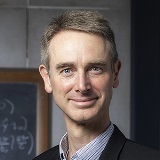
Paul V. Braun, PhD, Professor & Grainger Distinguished Chair, Engineering, University Of Illinois Urbana Champaign

Prof. Paul V. Braun is the Director of the Materials Research Laboratory, the Grainger Distinguished Chair in Engineering, and Professor of Materials Science and Engineering, Chemistry, Mechanical Sciences and Engineering, and Chemical and Biomolecular Engineering at the University of Illinois Urbana-Champaign. Prof. Braun received his B.S. degree with distinction from Cornell University, and his Ph.D. in Materials Science and Engineering from the University of Illinois Urbana-Champaign. Following a postdoctoral appointment at Bell Labs, Lucent Technologies, Prof. Braun joined the faculty of the University of Illinois Urbana-Champaign. Prof. Braun has co-authored a book, about 350 peer-reviewed publications, been awarded multiple patents, and has co-founded four companies. He was a member of the 2010-2011 DARPA Defense Science Study Group, and the 2015-2017 National Academies Technical Advisory Board for the US Army Research Laboratory. Prof. Braun is a Fellow of the Materials Research Society, AAAS, the National Academy of Inventors, and the American Academy of Arts and Sciences.

Vidyu Challa, PhD, Reliability Manager, ANSYS, Inc.

Vidyu Challa brings 20 years of industry experience with 10 years in the battery space. She has been involved in different levels of the battery supply chain including cell manufacturing, testing, root cause analysis, safety and battery risk mitigation. She has broad based expertise that includes engineering technology start-up experience, consulting, product development, R & D, and various roles in marketing and business development. Dr. Challa has led battery training courses at major conferences and for leading companies in consumer, medical, and automotive verticals. She has consulted for leading companies on Battery quality and safety and has developed battery qualification programs. Dr. Challa obtained a PhD from the University of Maryland, where her work was focused on electronics reliability.

Benjamin Christian, New Product Development Engineer, Freudenberg-NOK Sealing Technologies

Ben has over fifteen years' experience between General Motors, XALT Energy, and now Freudenberg Sealing Technologies as an innovator and Technical Specialist in the battery industry, specializing in cell materials, pack design, and validation. With deep expertise in system architecture, virtual analysis, and high-voltage safety, he has led innovations to streamline validation costs and timing while also improving safety across the industry. Ben earned his MS in Energy Systems Engineering from the University of Michigan and BS in Manufacturing Engineering from Ferris State University.
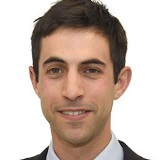
Adam Cohn, PhD, Principal Scientist, Materials Science and Electrochemistry, Exponent, Inc.

Adam Cohn is a materials scientist specializing in battery technology. At Exponent, he supports clients across a wide range of battery-related projects, including failure analysis, cell and pack quality evaluations, intellectual property litigation, cycling studies, customized abuse testing, product recalls, and technology due diligence. Prior to joining Exponent, his research was focused on material selection, synthesis, and characterization for new battery chemistries, including sodium-ion and sodium metal systems, as an NSF fellow at Vanderbilt University.

Eric Darcy, PhD, Battery Technical Discipline Lead, Power Systems, NASA Johnson Space Center

Eric C. Darcy, PhD, has spent his 36-year career at NASA in the areas of battery design, verification, and safety assessments for the rigors of manned spacecraft applications. As Battery Technical Discipline Lead at NASA-JSC, his main objective has been the development of safe, while high-performing, battery systems with a deep focus on understanding, preventing, and mitigating latent defects that could lead to catastrophic cell internal short circuits.

Brian Engle, Chairman, NAATBatt; Chair, SAE Battery Standards Steering Committee; Director, Business Development, Amphenol

As Business Development Manager for Amphenol Advanced Sensors, Brian Engle is responsible for developing new technologies and partnerships to address emerging sensor needs within various industries. With over 30 years of experience in research, development, and business roles within global OEM and Tier 1 automotive companies, Brian Engle blends system engineering disciplines with business acumen to develop cost-effective solutions to the most challenging needs within the industry. As an active member of SAE, Brian supports a number of battery and xEV safety initiatives and through participation in NAATBATT consortium, works together with OEM's, xEV supply chain partners, and government to develop technology to support the rapidly growing xEV and battery storage market.
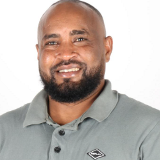
Gebrekidan G. Eshetu, PhD, Senior Scientist & Group Leader Energy Storage Devices, Power Electronics & Electrical Drives, RWTH Aachen University

Dr. Gebrekidan Gebresilassie Eshetu obtained his PhD by the end of 2013 in Materials Science/Chemistry (Electrochemical Energy Storage and Conversion Materials) from the LRCS (CNRS) laboratory in France, Amiens, under the supervision of Prof. Dr. Michel Armand, Prof. Dr. Stephane Laruele, and Dr. Eng. Sylvie Grugeon. Following, he did his postdoctoral research at the Karlsruhe Institute of Technology (KIT), Helmholtz Institute Ulm (HIU) in the group of Prof. Dr. Stefano Passerini. Then, he worked at CIC Energigune (Spain) as a senior postdoctoral researcher on solid electrolytes for lithium- and sodium-metals-based rechargeable batteries. In 2018, he joined RWTH, Aachen University, in the group of Prof. Dr. Egbert Figgemeier. Currently, he is a group leader at Institute of Power Electronics & Electrical Drives of RWTH for functional surfaces, interface, and interphases for applications in electrochemical energy storage devices, notably rechargeable batteries. His interest focuses on the design and characterization of functional electrolytes, pre-charging, surfaces, interfaces, and interphases for rechargeable batteries and beyond.

Donal Finegan, PhD, Staff Scientist Batteries, Electrified Transport, National Renewable Energy Laboratory

Donal Finegan is a senior scientist at the US DOE National Renewable Energy Laboratory (NREL). His work focuses on understanding degradation and failure mechanisms of Li-ion batteries and taking steps to improve the performance and safety of cells and battery systems. Through his research, Donal pioneered the application of high-speed X-ray imaging to visualize rapid dynamic mechanisms that occur within Li-ion cells as they undergo thermal runaway. He collaborates extensively with the NASA Johnson Space Center on developing a Fractional Thermal Runaway Calorimeter (FTRC) and compiling data for the Battery Failure Databank, the largest open-source database on thermal runaway data from Li-ion cells. He received his B.Eng in Chemical Engineering from University College Dublin (UCD) and a Ph.D in Advanced Diagnostics of Batteries from University College London (UCL).

William Fitzhugh, PhD, Co-Founder & CEO, Adden Energy

Dr. Fitzhugh is a Co-Founder and the CEO of Adden Energy, a Harvard University spin-off commercializing new solid-state battery technology. He earned his PhD in Applied Physics from Professor Xin Li’s group at Harvard University’s John A Paulson School of Engineering and Applied Sciences. During his graduate work, he was a co-inventor of the technology later licensed by Adden Energy, which focuses on critical market segments ranging from electric vehicles and power tools to consumer electronics. Before joining Adden Energy, Dr. Fitzhugh was an Entrepreneurial Fellow in the DOE’s Innovation Crossroads program housed at Oak Ridge National Lab.
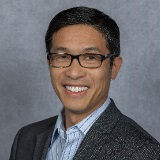
Kevin Fok, Director of Compliance, LG Energy Solution Vertech, Inc.

Kevin Fok is Director of Compliance and leads the company in product compliance strategy and requirements for product architecture and design. He serves on multiple codes and standards committees for UL, NFPA, ICC, and CSA. He has extensive experience in renewable energy with roles in sales, business development, marketing, engineering, project management, and operations & maintenance spanning lithium-ion batteries, solar photovoltaics (PV), nickel-metal hydride batteries, fuel cells, and hydrogen storage. He is a co-inventor of 13 U.S. patents. He has been a presenter, panelist, moderator, and session chair at over 100 conferences and events. He serves on the University of Michigan Engineering Alumni Board. He has a Master of Business Administration (MBA), Bachelor of Science in Chemical Engineering, and a Michigan Ross Distinguished Leader Executive Certificate, all from the University of Michigan, Ann Arbor.
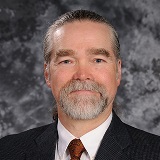
Kevin L. Gering, PhD, Distinguished Staff Scientist, Energy Storage Technologies, Idaho National Laboratory

Kevin L. Gering, PhD (INL) PhD Chem. Eng., University Oklahoma - 1989 (electrolyte theory). Kevin has been involved in battery testing and R&D for nearly 20 years while at INL. Dr. Gering is an established expert in the field of state-of-the-art molecular-based electrolyte models for electrochemical systems (Advanced Electrolyte Model, AEM), and has developed novel performance and lifecycle (aging) models for lithium-ion battery systems covering mechanistic aspects of kinetic limitations and performance loss over battery life (CellSage). AEM generates more than 100 property metrics with each simulation, giving genomic-level information for electrolyte characterization. CellSage simulations perform mechanism-wise analyses of battery aging while accounting for multiple concurrent stress factors that can change over the timeline. Kevin is well qualified to speak on issues of electrolyte transport, characterization, screening, and optimization for lithium-ion systems, wherein particular areas of expertise are highly concentrated electrolytes and low-temperature battery performance. During AEM development, Kevin has achieved milestones in formulating mathematics and new modeling techniques that capture properties that were previously very difficult to model over wide ranges of temperature and salt concentration, such as colligative permittivity, conductivity, diffusivity, viscosity, surface tension, ion desolvation energy and kinetics, double-layer composition and properties, comprehensive ion speciation, osmotic pressure, preferential ion solvation, and many others. Kevin is currently contributing to the DOE program eXtreme Fast Charge Cell Evaluation of Lithium-ion Batteries (XCEL), and is involved in integrating CellSage architecture and outcomes within a machine learning (ML) program under DOE-VTO. Dr. Gering has a diverse background in modeling complex systems, where other previous work covered developing a methane hydrates marine basin model, a dynamic passive aeration compost model, blast wave calculations, transport model for pulsed catalytic reactors, and others. He actively collaborates within DOE labs, universities, and the private sector, and is an advocate of domestic intellectual property, having several patents issued and pending, and under license. AEM and CellSage tools have seen increased licensing, speaking to the growing impact of INL to meet industrial needs.

Michael Harenbrock, PhD, Principal Expert, Engineering Electric Mobility, MANN+HUMMEL GmbH

Michael Harenbrock holds the position of Principal Expert, Electric Mobility at MANN+HUMMEL GmbH, a global leader in filtration solutions for the automotive industry. After receiving his Ph.D. in Organic Chemistry from WWU Münster in 1994, he worked in the chemical-pharmaceutical industry before joining MANN+HUMMEL in 1998 as Manager Materials Development Filter. Further positions in the company included Manager, Advanced Development Filtration Transportation and Manager, Advanced Development Electric Mobility & Fuel Cells. He has worked on fuel cell and battery projects since 2010. Through market and technology monitoring, he identifies the need for new innovative filtration solutions for Electric Mobility, and coordinates their related activities worldwide. International networking and collaboration in industry organizations are essential parts of his work. His passion is for Clean Transport - helping to protect man and environment from transport-related emissions.
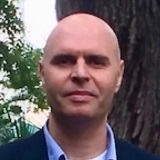
Hakim H. Iddir, PhD, Physicist, Chemical Sciences and Engineering, Argonne National Laboratory

Dr. Iddir is a Physicist in the Chemical Sciences and Engineering Division at Argonne National Laboratory (ANL). Dr. Iddir holds a Ph.D. in Physics from the University of Illinois at Chicago, a Master of Chemical Engineering from the Illinois Institute of Technology in Chicago. Dr. Iddir joined Argonne National Laboratory in 2006. His research interests are in the area of materials science, with a focus on developing experimental and theoretical approaches for investigating structure-property relationships at the atomic scale, defects, surfaces, interfaces in materials, chemical and physical properties of catalytic, non-catalytic and energy materials. His approach involves the use of ab-initio thermodynamics and materials modeling tools along with electron microscopy and spectroscopy techniques. Dr. Iddir published several scientific papers and patents, and serves as a reviewer for several scientific journals, the National Science Foundation, The European FNRS agency, and the Vehicle Technologies Office of the U.S. Department of Energy.

Sam Jaffe, Principal, 1019 Technologies

Sam Jaffe is the principal at 1019 Technologies. He has been in the battery industry for two decades as an analyst, a consultant, and an executive. He was previously the founder and managing director of Cairn ERA, a company acquired by E Source in 2021. Prior to that he worked at Navigant and before that at IDC Energy Insights. He was also the founder and CEO of Panea Energy and Cygnus Energy. He is the author of two books, Jewish Wisdom for Business Success and The New Korea, and lives in Boulder, Colorado.
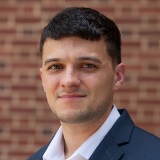
Nathan Johnson, PhD, Senior Member of Technical Staff, Sandia National Laboratories

Dr. Nathan B. Johnson completed his Doctorate in Chemical Engineering under Dr. Paul Albertus at University of Maryland, College Park in Spring 2023, and his Postdoc at Sandia National Laboratories under Dr. Loraine Torres-Castro and Dr. Alex M. Bates in January 2025. Since then, he has worked as a Senior Member of Technical Staff at Sandia National Laboratories in the Power Sources R&D organization. For the last 7 years, he has worked on safety, reliability, and diagnostics for a wide variety of primary and rechargeable battery chemistries from the materials-scale up to the pack-level. His primary focus is developing a predictive battery safety testing method through coupling materials-scale tests with numerical modeling.

Hannah Loizzo-Jay, Research Engineer, Cell Technology, Ford Motor Co.

Hannah Loizzo-Jay is a Cell Technology Research Engineer at Ford Motor Company, where she focuses on abuse testing of next generation batteries. During her time at Ford, she has researched battery materials for solid state electrolytes, sourced equipment for the Battery Center of Excellence pilot line, and launched the first model year of the Ford E-Transit in a powertrain hardware integration role. She received her B.S. in Chemical Engineering from Massachusetts Institute of Technology and an MEng in Energy Systems Engineering from the University of Michigan.

Sebastien Martinet, PhD, Battery Senior Scientist, Electrochemical Storage, CEA Liten

Dr. Sébastien MARTINET (CEA-LITEN), 48 year-old, is an electrochemical process engineer specialized in the field of batteries for 25 years. After a first experience with SAFT on Ni-MH batteries and safety for Li-Ion technology, he was in charge of setting up the Li-Ion cell prototyping line at CEA. He was then in charge of the battery laboratory at CEA from 2006 to 2009 and in 2010 became scientific advisor for the battery activities of the department until 2016. He is now a battery senior expert at CEA with activities covering various topics: active material developments (phosphates, silicates, rocksalt oxides and sulfides…) for Li-Ion, developments of beyond Li-Ion technologies like Na-Ion and Mg-Ion, technological transfer to industrial partners of Li-Ion active materials, participation to the creation of a battery Start-Up for niche markets and many other topics like separators, bipolar technology, cost modelling, Li-Ion battery modelling.

Naoki Matsumura, Principal Engineer, Intel

Naoki Matsumura is a Principal Engineer at Intel Corporation, responsible for battery algorithm development in charging and CPU turbo-boost, and new battery chemistry enabling for mobile devices, datacenters, and Internet-Of-Things (IOT) devices. He is frequently invited to international conferences to speak on battery topics such as machine-learning/deep-learning based battery charging algorithm. He also teaches batteries and AI (machine learning and deep learning) at San Jose State University as an adjunct faculty, where he also serves as a Materials Engineering Industry Advisory Council member. Prior to that, he held battery research and development roles at Panasonic Corporation. He earned his MS in Energy Science from Kyoto University and holds many patents. He is the author of "Practical Battery Design and Control", a peer-reviewed battery book published from Artech House in Feb.'23.

Masatsugu Morimitsu, Dr.Eng., Professor, Department of Science of Environment and Mathematical Modeling, Doshisha University

Masatsugu Morimitsu is a professor of the Department of Science of Environment and Mathematical Modeling of Graduate School at Doshisha University, Japan. He obtained his B.Eng., M.Eng., and Dr. Eng. degrees from the Department of Materials Science of Kyushu Institute of Technology, Japan. His independent research group focuses on the electrochemistry and materials of novel aqueous rechargeable batteries beyond LIB for stationary energy storage and EVs.
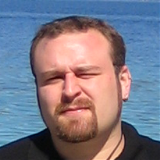
Sascha Nowak, PhD, Head of Analytics & Environmental, Electrochemical Energy Technology, University of Münster

Dr. Nowak studied Chemistry at the University of Münster and got his Ph.D. in Analytical Chemistry. After his doctorate, he joined the working group of Professor Winter at the MEET Battery Research Center at the University of Münster in 2009 as a postdoctoral researcher, where he established the Analytical department. From 2010-12, he was the Head of the Analytics and Recycling competence areas, and since 2012, he has held a position at the MEET Battery Research Center as Head of the Analytics and Environment division, which mainly focuses on electrolyte aging, transition metal migration and surface investigations, recycling, and second life, as well as toxicological investigations.

Deirdre O'Carroll, PhD, Associate Professor, Materials Science & Engineering, Rutgers University

Dr. Deirdre O'Carroll is a professor in the Departments of Materials Science & Engineering and Chemistry & Chemical Biology at Rutgers University since 2011. She obtained her B.E. in Electrical Engineering in 2002, and a PhD in Microelectronics in 2008 at University College Cork and the Tyndall National Institute, Ireland. She has published more than 80 papers and 3 patents in the areas of photonic and electronic materials and nanofabrication. Her recent research on carbon dots and their use as intermediaries for the formation of graphite has relevance to the production of battery anodes. She currently serves as a board member of PhotonicsNJ and as co-founder and scientific advisor for CarbonDots LLC.

Glenn Pastel, PhD, Materials Engineer, DEVCOM, U.S. Army Research Lab

Dr. Glenn Pastel is a materials engineer at the U.S. Army Research Laboratory working in the Battery Sciences branch under the guidance of his team lead, Dr. Kang Xu. He earned his PhD in 2019, under the direction of Prof. Liangbing Hu at the University of Maryland, with a dissertation focused on advanced anodes for lithium-ion batteries. Following graduation, he co-founded HighT-Tech LLC to commercialize high-entropy alloy catalysts for ammonia oxidation. His active areas of interest are energy storage technologies with an emphasis on transitioning emerging concepts from the lab to real-world applications.

Tanveer Pathan, PhD, Principal Engineer, University of Warwick

Tanveer Pathan is an electrochemical engineer with nearing a decade of R&D experience in the field of electrochemistry, electrochemical power devices, and surface engineering. The last six years of his career have been focussed on lithium-ion batteries (LIBs) to study the capacity retention in LIBs. In the past, he has worked on fuel cells, electrochemistry of corrosion and corrosion analysis, functional coatings for corrosion protection, and development of metal and graphene-based electrodes for fuel cells. Currently, he is the technical lead within the Forensic Analysis of Batteries Group at WMG, University of Warwick; covering both academic and industrial projects focusing on battery forensics and understanding the degradation mechanisms in lithium-ion batteries.

Ahmad Pesaran, PhD, Chief Energy Storage Engineer, National Renewable Energy Laboratory

After receiving his Ph.D. from UCLA, Ahmad has been working at NREL on energy efficient technologies including electrified vehicles. Until 2017, Ahmad was the Manager of the Energy Storage Group researching science and engineering of high energy anodes and cathodes, battery thermal management, 3D electrochemical-thermal modeling, safety and thermal runaway modeling, battery second use, techno-economic analysis of batteries for EVs; he led the Computer-Aided Engineering for Electric Drive Vehicle Batteries for Department of Energy (DOE).Between 2016 and 2018 he was detailed at the DOE's Vehicle Technologies Office (VTO) as technical advisor to the Battery program supporting battery processing, extreme fast charging and recycling. He was the Administrator for the first Phase of the DOE Battery Recycling Prize.Currently, Ahmad is pursuing energy storage business development activities for NREL and supports VTO with battery processing, manufacturing, solid electrolyte, and low-cobalt cathode projects.
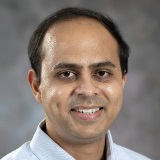
Vinay Premnath, Director of Research, Energy Storage Safety, UL Research Institutes

Vinay Premnath is the director of research with focus on energy storage safety at the Electrochemical Safety Research Institute which is a part of UL Research Institutes. His team leads cutting edge research to advance safer energy storage technologies that will serve as a critical bridge towards a more sustainable future.

Dhevathi R. Rajagopalan Kannan, PhD, Research Scientist, Electrochemical Safety Research Institute, UL Research Institutes

Dhevathi Rajan R Kannan is a Research Scientist in the Electrochemical Safety Research Institute (ESRI) at UL Research Institutes (ULRI). Dr. Kannan has more than six years of experience in battery research on battery cell testing and battery safety.

Amit Ranjan, Founder; Director, Regenerative Technologies, Asterisk Green

Amit Ranjan is a leading expert in battery technology, electric propulsion, and sustainable energy innovation. At Canoo, he transformed both greenfield and brownfield sites into full-scale gigafactory operations, delivering patented breakthroughs in battery fire safety and structural design. He also led the design of the nation’s largest geothermal energy storage and heat pump system for automotive manufacturing. During his tenure at Stellantis, Amit directed the Ferrari F160 engine program and managed BEV propulsion platform development across global nameplates-including Chrysler, Dodge, Jeep, Alfa Romeo, Maserati, and Abarth. As Founder of Asterisk Green Inc., he is pioneering AI-driven automation and energy-efficient systems for the industrial sector. Holding advanced engineering degrees from the University of Michigan and BIT Mesra, and serving as an adjunct professor at KIIT, Amit continues to shape the future of electrified mobility, advanced manufacturing, and global energy resilience.
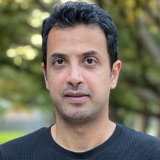
Masoud Rostami Angas, PhD, Lead Reliability Engineer, MBU, ANSYS Inc

Masoud Rostami-Angas, PhD, is a Lead Reliability Engineer at Ansys, where he focuses on root cause analysis, quality assessment, and reliability and qualification testing of battery and electronic products. With over 15 years of experience in academic, SBIR, and industrial environments, Dr. Angas has led initiatives and consulted across a wide range of sectors, including medical, consumer, industrial, and government. He received his PhD in Electrical Engineering from Northeastern University before transitioning to industry roles focused on reliability engineering.

James R. Salvador, Chemical Sciences & Materials Systems Laboratory, General Motors

Jim Salvador has worked at General Motors Research and Development for 16 years. During that time, he has led projects focused on solid state energy conversion technology for waste heat recuperation, solid state hydrogen storge materials fuel cell vehicles, low-cost permanent magnetic materials development. More recently he has worked on solid state batteries as well as fundamental understandings of thermal runaway initiation.
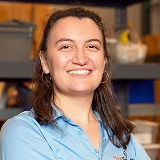
Becca Segal, PhD, CEO, FlowCellutions

Dr. Becca Segel completed her Bachelors of Science at Case Western Reserve University and PhD at the University of Pittsburgh both in chemical engineering with a research focus in flow batteries. During her PhD, Becca was awarded the NSF GRFP fellowship and was named one of the Pittsburgh Business Times’ 5 founders under 25 in 2022 for her entrepreneurial aptitude. She was previously a Great Lakes Energy Institute Fellow and researched as an intern at NASA Marshall Space Flight Center and NASA Ames developing energy storage technologies. Becca leads technical and business development efforts at the start-up company FlowCellutions.

Esther S. Takeuchi, PhD, Distinguished Professor, Materials Science & Chemical Engineering, SUNY Stony Brook

Dr. Esther S. Takeuchi is a SUNY Distinguished Professor and the William and Jane Knapp Chair in Energy and the Environment at Stony Brook University. She holds a joint appointment at Brookhaven National Laboratory as Chief Scientist and Chair of the Interdisciplinary Science Department. Previously, she was employed at Greatbatch, Inc., where her work was instrumental in the development of the lithium/silver vanadium oxide battery, the power source of life-saving implantable cardiac defibrillators. Dr. Takeuchi is a prolific inventor with >150 patents. Dr. Takeuchi is a nationally and internationally recognized scientist. She is a member of National Academy of Engineering, the National Inventors Hall of Fame, the American Academy of Arts and Sciences, is a Charter Member of the National Academy of Innovation and was awarded the National Medal of Technology and Innovation. She received the E. V Murphree and Astellas Awards from the American Chemical Society and the Electrochemical Society (ECS) Battery Division Technology award. She is a Fellow of the ECS, the American Institute of Medical and Biological Engineering, and the American Association for the Advancement of Science. She has received the European Inventor Award, the Sigma Xi Walston Chubb Innovation Award, an honorary Doctorate in Engineering from Notre Dame University, the ECS Edward G. Acheson Award and was elected to the American Academy of Arts and Sciences. She is the recipient of the 2022 National Academy of Sciences Chemical Sciences Award. She recently received the Yeager Award from the IBA-International Battery Materials Association and the DOE Energy Achievement Award from the Secretary of Energy.
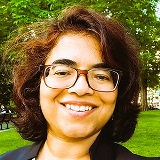
Deepti Tewari, PhD, Research Scientist, Electrochemical Safety, UL Research Institutes

Dr. Deepti Tewari completed her Doctorate in Mechanical Engineering under Professor Partha Mukherjee at Purdue University, and her Master's degree at University of Illinois at Urbana-Champaign. She conducted her postdoctoral research at Argonne National Laboratory before joining the Electrochemical Safety Research Institute, a part of UL Research Institute, where she currently works as a Research Scientist. Her research focuses on the electrochemical performance and safety of lithium-ion and advanced battery technologies, with particular emphasis on modeling approaches. Dr. Tewari's work spans the development and application of predictive models to understand and enhance battery safety and performance characteristics across various battery chemistries and configurations.
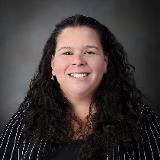
Loraine Torres-Castro, PhD, Battery Safety Lead, Sandia National Laboratories

Loraine Torres-Castro is the battery safety lead for vehicle electrification and grid energy storage at Sandia National Labs. The research that Loraine oversees focuses on evaluating batteries well outside of manufacturer recommended specifications and the severity of any catastrophic thermal runaway. In the Battery Abuse Testing Laboratory, her efforts are focused on understanding the mechanisms that lead to energy storage system safety incidents, and developing mitigation strategies for single-cell and system failures. Loraine has innovated abuse testing by targeting problems using a predictive approach (early detection for intervention) to eliminate failure rather than reacting to it. Her work has led to developments in advanced abuse testing, including a fundamental understanding of cell failure, to facilitate the design of safer energy storage systems. Her expertise and commitment to safety science have led to multiple cross-collaborations among sponsoring organizations, including the Department of Energy (Office of Electricity, the Vehicle Technologies Office, Advanced Research Projects Agency-Energy), Department of Transportation, and NASA. On behalf of the Vehicle Technologies Office, she authored and maintains the US Advanced Battery Consortium (USABC) Battery Abuse Testing Manual, widely used by car manufacturers to evaluate new technologies. Loraine is also a member of the USABC, for which she provides technical advice and recommendations.
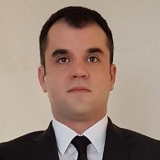
Dragoljub Vrankovic, PhD, Manager, Team Cell Technology, Daimler Truck

Dragoljub did his chemistry studies in Bosnia and Herzegovina followed by a Master of Science in advanced materials in Grenoble and Darmstadt as part of the ERASMUS Mundus program. At TU Darmstadt Dragoljub finished his Ph.D. in 2018 on silicon-based anode materials and continued his career as a postdoc in the battery field. In 2019 he joined Mercedes-Benz Car Group as an expert in silicon-based anodes and helped establish lab activities for cell development and testing. In 2020 he took responsibility as a project and technical lead for the development of a high energy cell. Dragoljub currently leads the anode expert group responsible for anode development @ Mercedes. Dragoljub successfully established technology partnerships on the subject of new silicon material with two world-leading material suppliers to support his anode development work. Apart from work, Dragoljub enjoys spending his free time with family (two sons and wife) and friends. He enjoys mountains, hiking, and biking. Furthermore, he likes farming (driving a tractor) on his parent’s farm in Bosnia. At Daimler Truck Dragoljub is responsible for the in-house development of Lithium-ion cells.

Eric Wachsman, PhD, Professor & Director, Materials Science & Engineering, University of Maryland College Park

Dr. Eric D Wachsman, Director of the Maryland Energy Innovation Institute, is a Distinguished University Professor and the William L. Crentz Centennial Chair in Energy Research with appointments in both the Department of Materials Science and Engineering, and the Department of Chemical Engineering at the University of Maryland. He received his PhD in Materials Science & Engineering from Stanford University, and his BS in Chemical Engineering from the University of California at Berkeley. Dr. Wachsman is Past President of The Electrochemical Society (ECS), Editor-in-Chief of Ionics, on the Editorial Board of Scientific Reports, Energy Systems, and Energy Technology, and a member of the American Chemical Society, the International Society for Solid State Ionics, and the Materials Research Society. He is a Fellow of ECS, the American Ceramic Society (ACerS), the National Academy of Inventors, and the World Academy of Ceramics; the recipient of the 2017 Carl Wagner Award from ECS; the 2014 Sir William Grove Award from the International Association for Hydrogen Energy; the 2014 Pfeil Award from The Institute of Materials, Minerals, and Mining; the Outstanding Invention of 2013 award from the University of Maryland Office of Technology Licensing; the 2012 Fuel Cell Seminar & Exposition Award; and the 2012 HTM Outstanding Achievement Award from ECS. His research is focused on solid ion-conducting materials and electrocatalysts, and includes the development of solid-state batteries, solid oxide fuel cells, ion-transport membrane reactors, solid-state gas sensors, and the electrocatalytic conversion of CH4, CO2, and NOx, using advanced ion conducting materials. He has more than 280 publications and 40 patents on ionic and electronic transport in materials, and their catalytic properties, and device performance, and to date four companies have been founded based on these technologies.

Matthew Wang, VP, Tech Programs, Amionx

Dr. Matthew Wang graduated from Peking University with a Materials Science major in 2010. He has over 14 years of working experience in the Lithium-ion battery industry. At Amionx, his R&D focus is to make safer batteries by using SafeCore as a current interrupter and limiter to mitigate thermal runaway. He leads an internal team to develop next generation safety technologies and he also oversees external technical programs with international customers and partners.

Steven Weiss, PhD, President, Xilectric

Steve Weiss, Ph.D. is the founder and Principal Investigator at Xilectric Inc., where he leads the development of next-generation battery diagnostics and metrology tools for quality assurance in lithium-ion manufacturing. He holds a Ph.D. in Chemical Engineering from MIT and a B.S. from the University of Illinois Urbana-Champaign (Summa Cum Laude). Dr. Weiss has authored multiple patents in battery diagnostics and electrochemical modeling, and has successfully transitioned lab-scale innovations into commercial pilots for both defense and industrial partners. Xilectric’s work integrates real-time hardware metrology with predictive modeling to resolve critical bottlenecks in cell and pack manufacturing, enabling clarity and insights previously unattainable in battery metrology through its integrated hardware-software innovations.
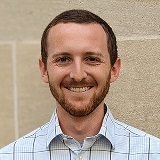
Patrick Wise, Program Analyst, Office of Resource Conservation & Recovery, U.S. Environmental Protection Agency

Patrick Wise is a policy analyst in the Office of Resource Conservation and Recovery at the US Environmental Protection Agency. He specializes in solid and hazardous waste regulations under the Resource Conservation and Recovery Act (RCRA), including regulations for end-of-life lithium batteries. Patrick is on the EPA team developing a proposed rulemaking to update the universal waste regulations that apply to end-of-life lithium batteries, and he has previously co-authored a report on fires caused by these batteries in the solid waste management system and developed guidance materials clarifying how waste battery management and recycling is regulated.

James Wu, PhD, Senior Research Scientist, NASA Glenn Research Center

Dr. James Wu is a Sr. Research Scientist at NASA Glenn Research Center. He earned his Ph.D. in Chemistry from the University of Illinois at Urbana-Champaign and his Master’s degree in Chemistry from Rutgers University at New Brunswick, New Jersey. He holds another Master’s degree in Electrochemistry and a B. Eng. degree in Chemical Engineering. Prior to working for NASA, he held positions in industry with various battery development companies that include: Scientist with Wildcat Discovery Technologies, Sr. Electrochemical Engineer with PowerGenix, and Staff Technology Engineer with Energizer Battery Company. He has many years of combined postdoctoral, industrial and government R&D experiences on developing electrocatalysts, environmental catalysts, energy storage materials and electrochemical systems. He possesses varied experiences and different technical skills to address various aspects of fundamental electrochemical system concepts. He is currently working on developing safe and advanced battery technologies for NASA future missions.
講演者更新
イベント情報更新
講演者更新







